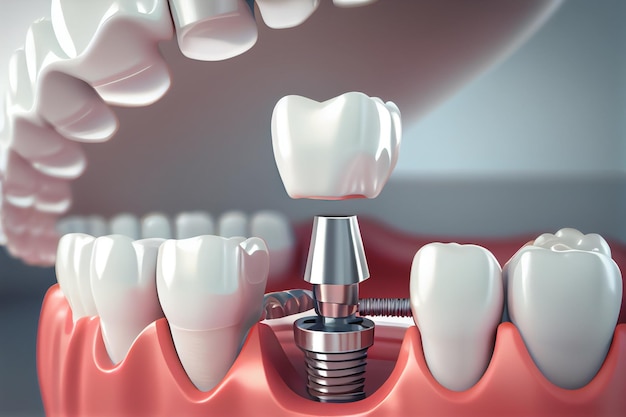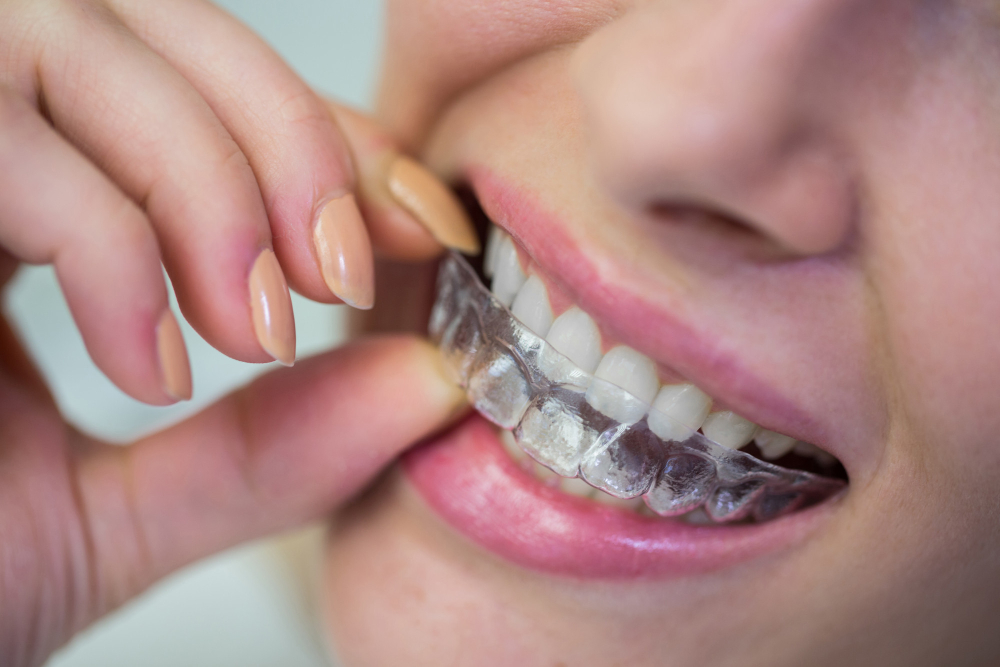What are Dental Crowns?
Dental crowns, also known as caps, are dental restorations that encase a damaged or weakened tooth. They are custom-made to fit perfectly over your natural tooth, providing strength, protection, and improving its appearance. Crowns are often used in cases where a tooth is severely decayed, cracked, or discolored beyond the point of being repaired by a filling.
Types of Dental Crowns
Several types of dental crowns are available, each with its own unique set of advantages. The most common types of dental crowns include:
- Porcelain Crowns: These crowns are popular for their natural appearance, making them an excellent choice for front teeth restoration. They blend seamlessly with the surrounding teeth, providing a beautiful, lifelike smile.
- Metal Crowns: Made from metals like gold, platinum, or base metal alloys, metal crowns are exceptionally durable and can withstand biting and chewing forces well. They are commonly used for molars or teeth that are not prominently visible.
- Porcelain-fused-to-Metal (PFM) Crowns: PFM crowns combine the natural aesthetics of porcelain with the strength of metal. The underlying metal structure provides strength, while the porcelain overlay gives a more natural appearance.
- All-Ceramic Crowns: These crowns are entirely made of ceramic or porcelain, making them an excellent choice for individuals with metal allergies. They are known for their exceptional aesthetics and are suitable for visible teeth.
- Zirconia Crowns: Zirconia crowns are a popular choice due to their remarkable strength and durability. They are less likely to chip or crack, making them an ideal option for both front and back teeth restorations.
Advantages of Dental Crowns
Dental crowns offer a plethora of benefits, making them an indispensable dental treatment for various oral health issues. Some of the key advantages include:
- Restoration of Tooth Shape and Size: Crowns are custom-made to match the natural shape and size of your teeth, ensuring a seamless fit.
- Enhanced Aesthetics: Porcelain and ceramic crowns mimic the appearance of natural teeth, improving your smile and boosting self-confidence.
- Improved Tooth Strength: Crowns provide reinforcement to weakened teeth, preventing further damage and potential fractures.
- Long-lasting Solution: With proper care, dental crowns can last for many years, providing a cost-effective and durable dental solution.
The Dental Crown Procedure
The process of getting a dental crown typically involves two appointments. During the first visit, our experienced dentist will assess your tooth and determine if a crown is the best treatment option. The dentist will then prepare the tooth by removing any decay or damage and reshaping it to accommodate the crown.
After preparing the tooth, an impression of the tooth and surrounding teeth will be taken to create a custom crown that fits perfectly. The impression will be sent to a dental laboratory, where skilled technicians will craft your crown. In the meantime, a temporary crown will be placed over your tooth to protect it.
Once the permanent crown is ready, you will return for the second appointment. The temporary crown will be removed, and the permanent crown will be checked for fit, color, and aesthetics. Once approved, the crown will be permanently cemented onto your tooth, completing the procedure.
Aftercare and Maintenance
To ensure the longevity of your dental crown, it is essential to follow proper aftercare and maintenance practices:
- Practice Good Oral Hygiene: Brush your teeth twice daily with a fluoride toothpaste and floss regularly to keep your crown and natural teeth clean and free from plaque buildup.
- Avoid Chewing Hard Objects: While dental crowns are durable, they can still be susceptible to damage from excessive force. Avoid chewing on ice, hard candies, or using your teeth as tools.
- Regular Dental Check-ups: Visit your dentist for regular check-ups and cleanings. Your dentist will examine your crown and ensure it remains in excellent condition.
Potential Risks and Complications
Like any dental procedure, dental crowns also carry some risks and potential complications. These may include:
- Sensitivity: You may experience tooth sensitivity, especially to hot or cold temperatures, immediately after getting a crown. This sensitivity usually subsides within a few days.
- Allergic Reactions: Some individuals may be allergic to certain crown materials, like metals or certain ceramics. It is essential to discuss any allergies or sensitivities with your dentist before the procedure.
- Crown Dislodgment: In rare cases, a crown may become loose or dislodged. If this happens, contact your dentist immediately for prompt re-cementation.
Conclusion
In conclusion, dental crowns are an invaluable dental treatment option for restoring and protecting damaged teeth. With various types available, you can choose the one that best suits your needs and preferences. Remember to follow proper aftercare practices to ensure the longevity of your crown and maintain a healthy, radiant smile.






